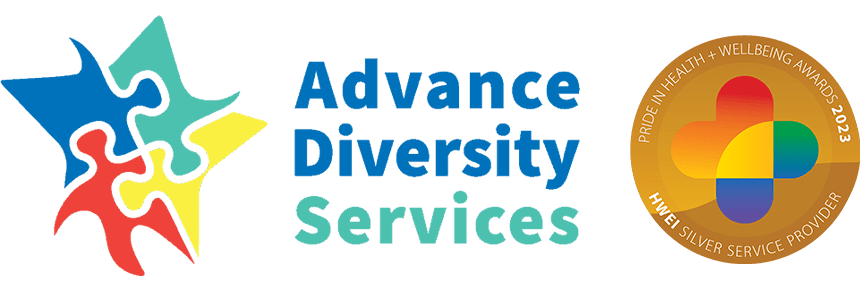A 20-week program led by Advance Diversity Services for parents and grandparents from the Nepalese community has given participants a safe space to share their experiences and gain critical information about mental health and wellbeing in the postnatal period.
ADS worked in collaboration with Kogarah Storehouse, the South Eastern Sydney Local Health District (SESLHD) and other local services to offer the postnatal support group sessions, which included a mix of networking time, workshop activities, and self-care activities like stretching and yoga.
Sessions were co-designed with the Nepalese community and in consultation with two bicultural workers from South Eastern Sydney Local Health District – Basudha Karki and Sajana Golay Lama.
Mothers, fathers, grandmothers and grandfathers attended the informative sessions presented by health professionals and community workers and say they were educational, practical and supportive.

Having bicultural workers present and interpreting at all sessions, as well as The Kogarah Storehouse providing the venue, catering and childminding, meant participants felt comfortable and understood, and could make the most of their learning.
‘We know from providing services in the Nepalese community that new mothers in the community are experiencing postnatal depression but there are a lot of factors that prevent them from getting the support they need,’ said ADS Project Coordinator Rishi Acharya.
‘We also know parenting is not a nuclear family event in Nepalese culture – with many grandparents living with their children to help raise their grandchildren. Parenting education benefits all the family and has a flow-on effect – which is why grandparents have been so important in this project.’
Also, many mothers in the Nepalese community in the St George area return to work after six months maternity leave, meaning grandparents play a major role in bringing up the baby and keeping the family together and allowing their children to pursue their professional work.
Nepalese grandparents usually come to Australia on a Contributory Parent visa – and it can be hard to find people in their age group they can relate to who are in the same situation, which can be isolating.
Sessions offered participants a wide range of information, education and tips for practical support, with a major emphasis on:
- Postnatal depression – what it feels like, how to recognise its symptoms and where to find help and treatment.
- Child development and parenting skills – including health and education about the first five years of life, playgroups and preschool, transitioning to primary school and meeting age-appropriate milestones.
Other sessions looked at: Practising mindfulness to help reduce stress; The importance of child car seats; Becoming Us – a whole family approach to pregnancy, birth and beyond;
1-2-3 Magic & Emotion Coaching training to equip parents and make parenting more enjoyable; Bilingualism Speech Pathology Services; Karitane (expert parental support, education and advice); the Wolli Creek Hub; the National Disability Insurance Scheme (NDIS); intergenerational conflict; physio and occupational therapy services which demonstrated how a child’s pretend play can help them to develop social skills, fine motor skills, sensory processing, emotional regulation and self-help skills.

Participants also learnt about ForWhen, which provides a free and supportive mental health navigation service for new and expecting parents – mums, dads and guardians – and their family from their baby’s conception until their first birthday.
‘Feedback from the ADS program has been positive,’ said Mr Acharya, ‘with people valuing the sessions and the networking support they’ve encountered with other parents and carers.
Participants also say they now have increased: confidence to ask questions of bicultural facilitators and contact them directly for individual needs; awareness of services available to parents and carers; understanding about mental health services; and knowledge of complex feeding, speech delays and developmental stages.
‘It’s also a good sign that the support group wants to continue to meet on Monday mornings at The Kogarah Storehouse – to stay connected and to continue learning from sessions facilitated by health workers and other professionals.’
Mr Acharya said support and patience from family and friends is often the most important factor in a woman’s recovery from postnatal depression.
‘What we’ve done with this program is create a safe place where parents and grandparents feel comfortable to discuss mental health issues, find social connection and enjoy mutual support no matter how they’re feeling,’ Mr Acharya said.
‘This makes early identification of postnatal depression and other mental health concerns much easier.
‘The rapport that’s been fostered is quite incredible – with almost 100 people attending a family picnic at Rockdale Park on July 19 to celebrate the conclusion of the 20-week program.

‘There was much laughter at the picnic day, with games, dancing, singing, a barbecue and delicious Nepalese food shared.
‘During a game of tug of war, there were so many women on each end of the rope that everyone collapsed in laughter on both sides when the rope snapped exactly in half.
‘I think that’s a great metaphor for how we’ll win the war against postnatal depression – drawing together, not pulling apart.’
_______________
One hundred parents and grandparents residing in South-Eastern Sydney took part in the Nepalese Postnatal Education and Support Group program which ran from February to July 2023. It was funded by the St George NSW Community Collaborative whose goal is to address mental health distress, suicide and suicide risks within the community.
Community Collaborative Stakeholders were: ADS, Kogarah Storehouse, St George & Sutherland Mental Health Service, SESLHD, and Child, Youth, Family Services, Population and Community Health, SESLHD. To get involved in the Nepalese support group held at The Kogarah Storehouse on Monday mornings contact Rishi Acharya on 02 9597 5455.
